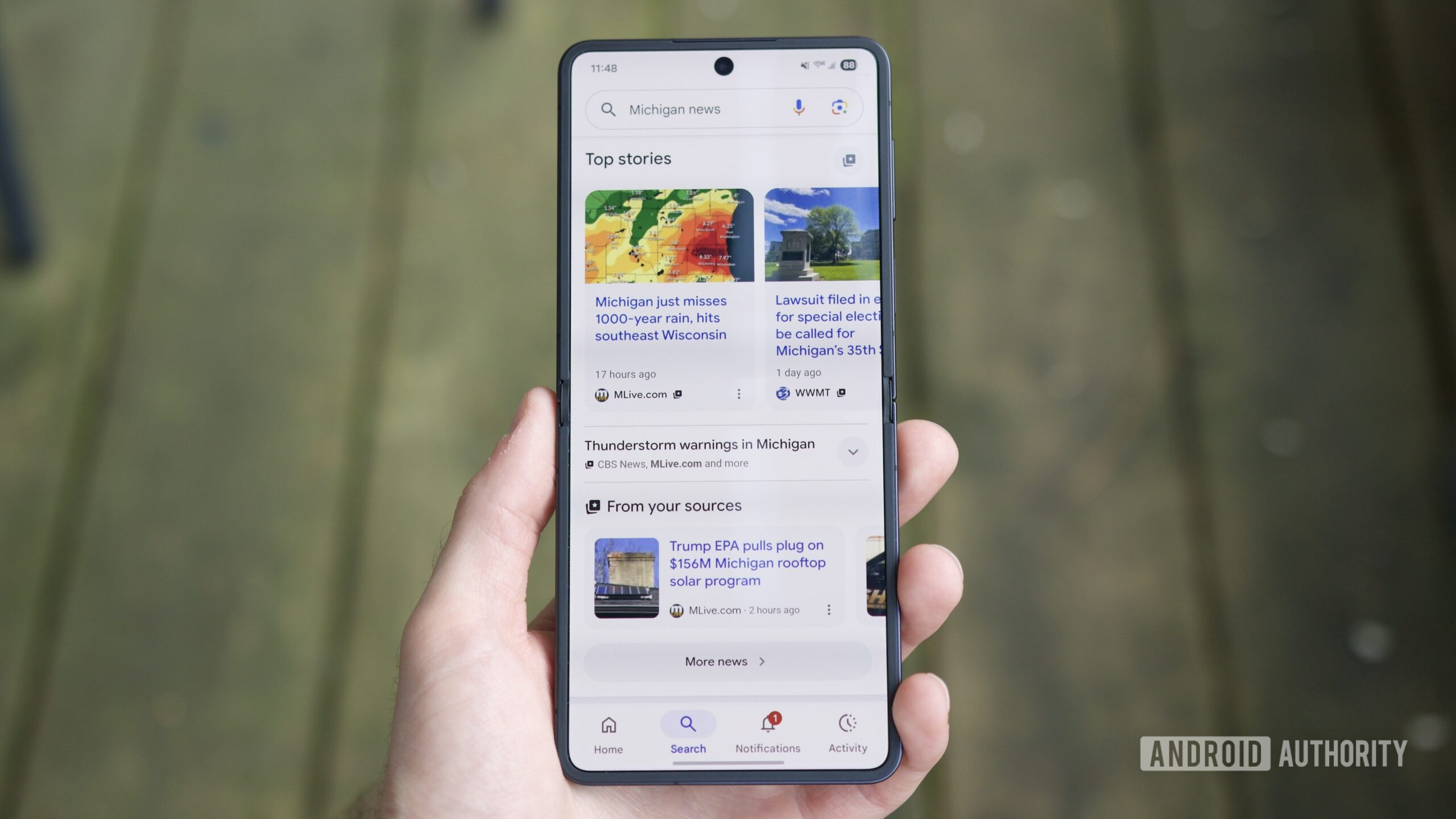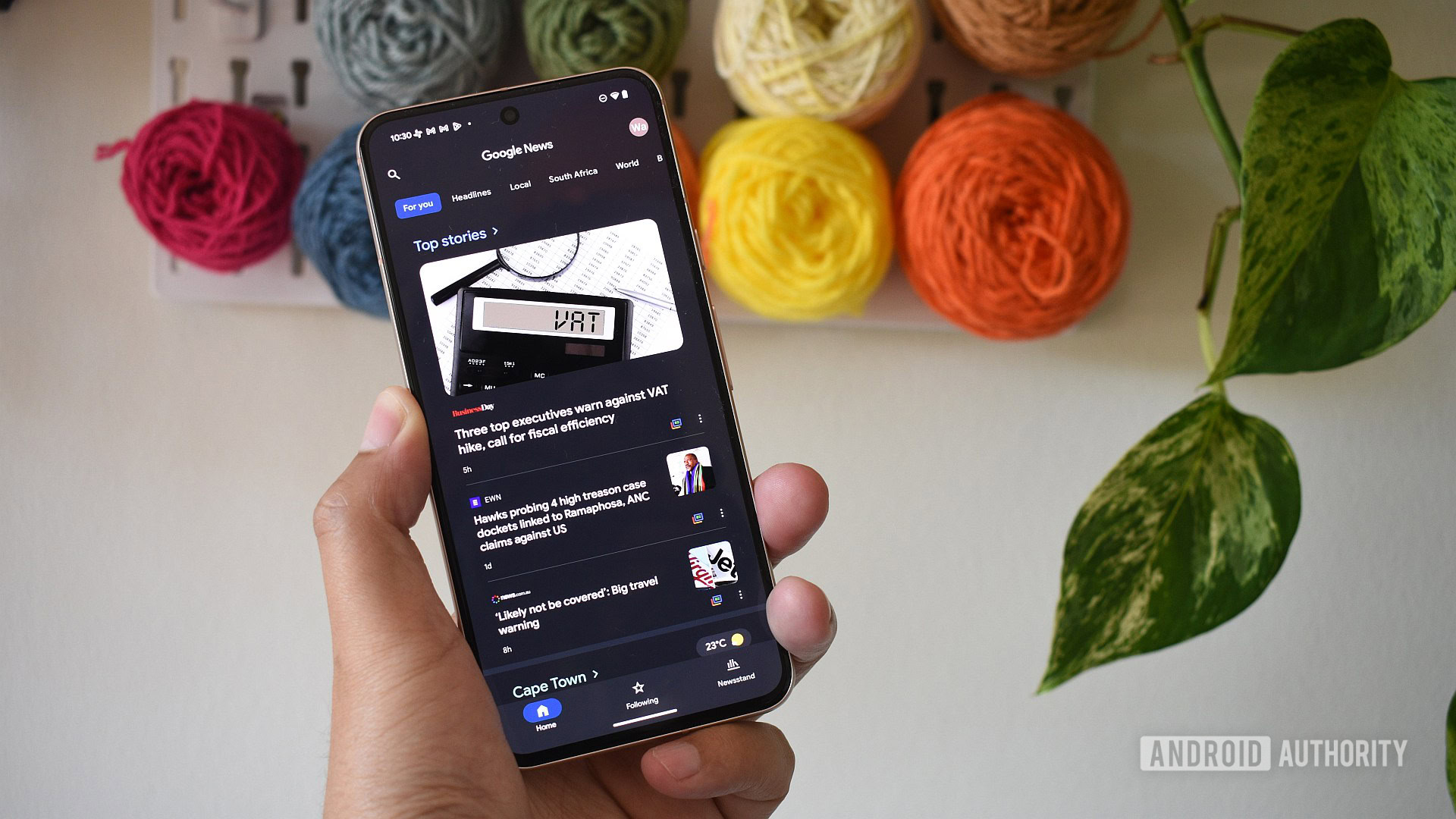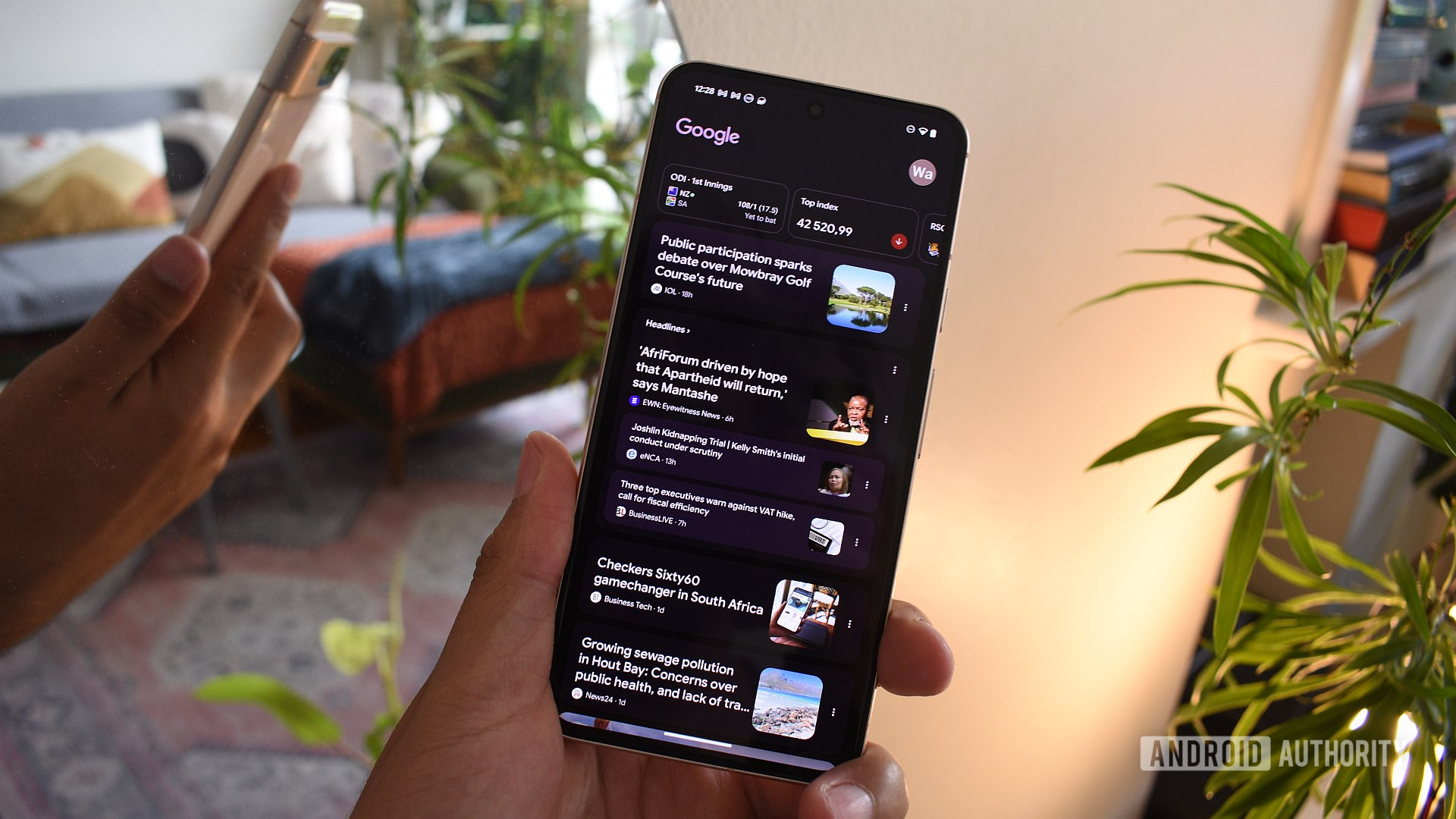Andy Walker / Android Authority
It seems like everyone celebrated the announcement of Preferred Sources for Google Search. Don’t get me wrong; it’s a good idea. Giving consumers more control over their internet experience is definitely the way to go. However, I find it a somewhat pointless addition to a tool I use to find a variety of sources and not merely highlight my favorites. Beyond Search, I argue that two other Google products would benefit from Preferred Sources: News and Discover.
I’ve spent much time trying to shape Google’s content delivery and discovery platforms to meet my needs. And despite my best efforts, some of which I’ve documented, News and Discover continue to serve me low-grade content regularly. Do you really want me to click on an article with an AI-generated rendering of two fantasy phones posing as breaking news, Google? I’m genuinely not so sure anymore.
Do you like Google Search’s Preferred Sources feature?
45 votes
If Preferred Sources were rolled out to these two content-critical platforms, it would boost these two services and benefit their users.
Why Preferred Sources isn’t a good fit for Search

Joe Maring / Android Authority
Preferred Sources is a new feature Google rolled out to select markets that displays and prioritizes content from sites you’ve cherry-picked when using Google Search. This isn’t to say that every article will be from these sites, but a larger portion of content will be. In theory, this feature allows users to customize their search engine experience better, turning Search into a de facto news app.
The benefits are clear. As my colleague Joe details in his hands-on, Preferred Sources completely changes the game for consumers who use Search in this way. However, this isn’t how I’d want my search engine to function.
While I appreciate Google handing me more control over online content, Preferred Sources solves a problem that doesn’t really exist.
While I appreciate companies (especially tech giants like Google) giving users more control over the content they encounter online, I think Preferred Sources solves a problem that doesn’t exist. The feature assumes Google Search is my primary news source, but that isn’t and likely never will be the case. I don’t use search engines to find results from a specific site unless I specify this requirement within the query.
Google already gives us the tools to do just that. You can use the “site:” modifier, or, as I often do, the lazier “search term + source” alternative. This works without issue. I do this for Reddit, Android Authority, and local news sites. So what problem does Preferred Sources solve here?
Preferred Sources also adds another visual layer to the cluttered Search interface lasagna. The feature influences the articles in the Top Stories carousel and introduces a new “From your sources” section, pushing search results further down the screen. This joins other sections, like Videos, Things to do, Local news, Latest posts, and People also ask.
Compare this design to alternative search engines like DuckDuckGo, which has a single explainer box up top (if necessary), and results almost immediately below — it’s night and day. One takes a long scenic detour through streets and streets of content, the other takes the most direct route.
Don’t want to miss the best from Android Authority?
But perhaps the biggest issue I’ll face with Preferred Sources is that it requires me to use Google Search while logged in. This seems obvious as it hinges on personal preferences stored on your Google account, but this isn’t how I use Search. Unless specifically required, I never use Google Search while logged into my account to ensure the company doesn’t link my searches to my other internet habits. I know I can’t prevent this entirely, but not giving Google insight into my searching habits is just good, sensible digital hygiene.
Preferred Sources makes more sense for Google News and Discover

Andy Walker / Android Authority
I explained why Google’s Preferred Sources feature makes little sense for Search, but why do I feel it’s perfect for Google News and Discover? Well, unlike Search, they are both purpose-built platforms for news delivery and content discovery; they’re not search engines. When I use News and Discover, I want to narrow down the results to reliable, well-researched articles from sources I’ve vetted — you know, preferred sources. Like a dedicated news app like Inoreader or Feedly, I’d value having control over News and Discover to choose which sites and content I want to encounter more often.
I constantly struggle to find relevant content in Google News and Discover. Preferred Sources would change this overnight.
Preferred Sources wouldn’t need to influence News and Discover if these platforms weren’t so haphazard with content promotion. Despite my regular curation of sources and topics, low-quality content is still pervasive, and the current management tools for Google News don’t do much to soothe this.
You could argue that Google News’ Following feature is already for cataloging preferred sources, but this list doesn’t influence what I see on the home page. I must tap the Following tab to access the topics and sources I follow. If Preferred Sources functioned on News as it does on Google Search, it would populate my main feed with content from my favorite sites but still recommend related content. This is my dream scenario for the app.

Andy Walker / Android Authority
There’s even more room for content management within Discover. Often, I’m served content I have no interest in, low-effort AI-generated slop, or out-of-date articles. As Discover is more closely integrated with Search on Android, it would be the perfect test bed for a Preferred Sources feature.
Additionally, adding Preferred Sources to these platforms makes sense as I’m usually logged into one of my Google accounts when using them. I have a dedicated Google account specifically for News and Discover.
Thanks for the effort, Google, but it’s a little misplaced
I don’t want to come across as deliberately combative here. In fact, I want to praise Google for Preferred Sources. Its existence indicates that Google is trying to personalize our search experiences without using AI, which is a positive move. But as I’ve outlined, I think its effort is misplaced, and its search engine perhaps isn’t the best home for the feature.
Thankfully, Google still has time to polish Preferred Sources and introduce it to other products. It’s currently only available to users in the US and India, so the company is clearly still refining it before a broader global release. When that time comes, I sincerely hope it arrives on products that will benefit from it.
Thank you for being part of our community. Read our Comment Policy before posting.








